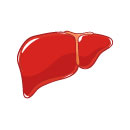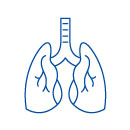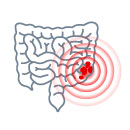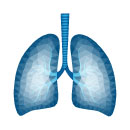Podcasts
Selected Studies From the 2019 ASCO Annual Meeting
In this debut episode of The ASCO Post Podcast, experts in breast, prostate, and lung cancers and multiple myeloma provide clinical insights about selected studies presented at the recent ASCO Annual Meeting, plus news from the FDA.
2019 ASCO: Pancreatic, Urothelial, and Cervical Cancers
In this episode, we discuss more news from the ASCO Annual Meeting, sharing interviews with experts on studies in pancreatic, urothelial, and cervical cancers. We’ll also tell you about a couple of new drug approvals announced this week by the FDA.
2019 ASCO: Resection of Liver Metastases
In this episode, we discuss more news from the ASCO Annual Meeting, including findings from a study with relevance to surgical oncology, a summary of a study in HER2-positive breast cancer, and a third study on discrimination among hematology/oncology fellows. We also discuss two FDA approvals that took place in the past week.
CASSIOPEIA Trial in Multiple Myeloma
In this episode, we discuss news from the Annual Congress of the European Hematology Association in multiple myeloma, catch up on a study presented at ASCO on gastric cancer, and review a recently published paper on prostate cancer development in World Trade Center first responders.
Role of Liquid Biopsy in Lymphoma
In this episode, The ASCO Post's Editor-in-Chief Dr. James Armitage talks about the International Conference on Malignant Lymphoma (ICML), which he attended recently in Lugano, Switzerland; in particular, Dr. Armitage shares insight from a workshop on bridging liquid biopsy into the management of patients with lymphoma. He also discusses two studies from the plenary session looking at the impact of adding lenalidomide to R-CHOP in the management of diffuse large B-cell lymphoma.
Later in the podcast, we discuss findings from the PHARE trial on adjuvant trastuzumab dosing in HER2-positive breast cancer and we report two recent approvals by the FDA.
ESMO World GI: Findings From the BEACON CRC Trial and More
We discuss two studies on colorectal cancer that were presented at the ESMO World Congress on Gastrointestinal Cancer. We also talk about a recently published study on the prevalence of pain among cancer survivors in the U.S.
Long-Term Results From the National Lung Screening Trial
This week, we discuss long-term results from an extended analysis of the National Lung Screening Trial, and Dr. James Mulshine of Rush University offers his thoughts on these findings. We also review a report on radioactive iodine treatment for hyperthyroidism and long-term risk of death from solid cancers.
Rates of Early-Onset Colorectal Cancer
This week, we discuss a study that found a disconnect between rates of colonoscopy and recent increases in colorectal cancer incidence in younger adults. In addition, Kimmie Ng, MD, MPH, of Dana-Farber Cancer Institute, offers her insights on the rising rates of colorectal cancer in young adults. Then, we turn to a report on the relationship between androgen-deprivation therapy and rates of Alzheimer disease and dementia in elderly patients with prostate cancer.
Overall Survival in MONALEESA-7
This week, we discuss an interim analysis of the MONALEESA-7 trial of the addition of ribociclib to endocrine therapy in pre- or perimenopausal women with advanced hormone receptor–positive, HER2-negative breast cancer. We also talk about a study that examined the relationship between the duration of chemotherapy and body mass index and the development of lymphedema in some patients with breast cancer. Lastly, we present three recent approvals and regulatory communications from the FDA.
Erdafitinib for FGFR-Altered Advanced Urothelial Carcinoma
This week, we review a phase II trial of erdafitinib in urothelial carcinoma with an FGFR alteration. We also talk about a report from the World Health Organization on tobacco use worldwide. Then, we discuss two recent U.S. Food and Drug Administration approvals in prostate cancer and a rare joint tumor.
Ibrutinib and Rituximab vs Standard Chemoimmunotherapy in CLL
This week, we review a report on the combination of ibrutinib and rituximab vs standard chemoimmunotherapy in some patients with chronic lymphocytic leukemia (CLL); a study on cancer statistics in adults aged 85 and older; and a decision from the Centers for Medicare and Medicaid Services (CMS) on coverage of chimeric antigen receptor (CAR) T-cell therapy for Medicare beneficiaries.
USPSTF Recommendation Against Pancreatic Cancer Screening in Asymptomatic Adults
This week, we review the U.S. Preventive Services Task Force (USPSTF) recommendation against screening for pancreatic cancer in adults with no symptoms. We also talk about the discovery of a germline mutation that has been newly associated with pancreatic cancer. Lastly, we discuss a U.S. Food and Drug Administration review which concluded a common Parkinson’s disease drug does not contribute to the development of prostate cancer.
Pooled Survival Analysis of Patients With NSCLC Treated With Nivolumab
This week, we review a pooled analysis of long-term survival rates in patients with previously treated non–small cell lung cancer treated with nivolumab. We then turn to the recently reported USPSTF recommendation on risk assessment, genetic counseling, and genetic testing for BRCA1 or BRCA2 mutations. Lastly, we discuss the recent FDA approval of entrectinib for NTRK-fusion cancers and ROS1-positive NSCLC.
First-Line Nivolumab and Ipilimumab vs Sunitinib in Advanced Renal Cell Carcinoma
This week, we’ll be talking about an extended follow-up of a phase III trial that investigated first-line nivolumab and ipilimumab vs sunitinib in advanced renal cell carcinoma. Then we’ll go over a research letter that identified strong predictors of response to immune checkpoint inhibitor treatment. Lastly, we’ll review a report on e-cigarette secondhand smoke exposure experienced by middle and high school students.
News From the IASLC World Conference on Lung Cancer and the ASCO Quality Care Symposium
This week, we’ll be discussing findings presented at the International Association for the Study of Lung Cancer (IASLC) World Conference on Lung Cancer and the ASCO Quality Care Symposium, including a pooled analysis on 5-year overall survival rates in patients with previously treated non-small cell lung cancer receiving nivolumab vs docetaxel; the effect of out-of-pocket costs of tyrosine kinase inhibitors on survival in patients with lung cancer; and the relationship between participation in a clinical trial and overall survival in patients with advanced lung cancer.
News From the ASTRO Annual Meeting
This week, we’ll be going over news from the 2019 American Society for Radiation Oncology (ASTRO) Annual Meeting, including an analysis of the effect of long-term hormonal therapy on men with low prostate-specific antigen levels treated with early salvage radiotherapy after radical prostatectomy and an update on the landmark PACIFIC trial in non–small cell lung cancer. We also discuss the launch of Project Orbis, which led to a joint approval from the FDA, the Australian Therapeutic Goods Administration, and Health Canada for lenvatinib in combination with pembrolizumab in the treatment of some patients with advanced endometrial carcinoma.
Benefit of Daratumumab Across Populations With Newly Diagnosed Multiple Myeloma
This week, we review a presentation on the benefit of daratumumab across populations with newly diagnosed multiple myeloma. We also talk about a study on racial disparities in colorectal cancer mortality. Lastly, we discuss the U.S. Food and Drug Administration’s recent approval of apalutamide in metastatic castration-sensitive prostate cancer.
News in Ovarian Cancer From ESMO 2019
This week, we review two studies from a Presidential Symposium at the European Society for Medical Oncology (ESMO) Congress 2019 focusing on the efficacy of poly (ADP-ribose) polymerase (PARP) inhibitors in patients with newly diagnosed ovarian cancer.
Lung Cancer Research Highlights From ESMO 2019
This week, we’ll be discussing research highlights in lung cancer presented at the ESMO Congress 2019, including the FLAURA trial of osimertinib in EGFR-mutated non–small cell lung cancer; the CheckMate 227 of nivolumab plus ipilimumab vs chemotherapy in non–small cell lung cancer with a PD-L1 expression of 1% or more; and the ASCEND-7 trial of ceritinib for ALK-positive non–small cell lung cancer that has spread to the brain.
Selected Breast Cancer Abstracts From ESMO 2019
This week, we’ll be discussing selected breast cancer abstracts presented at the ESMO Congress 2019, including the MONALEESA-3 and MONARCH 2 studies of CDK4/6 inhibitors for advanced breast cancer; the BROCADE 3 trial of veliparib plus carboplatin and paclitaxel in some advanced BRCA-mutated breast cancers; and the KATE-2 study of atezolizumab and trastuzumab emtansine in HER2-positive breast cancer.
News in Genitourinary Cancers From ESMO 2019
This week, we discuss two studies in genitourinary cancers presented at the ESMO Congress 2019. The CARD trial investigated treatment with cabazitaxel vs an androgen signaling–targeted inhibitor among patients with metastatic castration-resistant prostate cancer who had disease progression on docetaxel and the alternative androgen signaling–targeted inhibitor. The IMvigor130 trial focused on the efficacy and safety of atezolizumab as monotherapy or combined with platinum-based chemotherapy vs placebo plus platinum-based chemotherapy in previously untreated locally advanced or metastatic urothelial carcinoma.
Gastrointestinal Cancer Research From ESMO 2019
This week, we discuss two studies in gastrointestinal cancers presented at this year’s European Society for Medical Oncology Congress. First up, the NEOLAP trial assessed induction chemotherapy with nab-paclitaxel plus gemcitabine or sequential FOLFIRINOX followed by surgical exploration in patients with locally advanced pancreatic cancer. Next, we’ll discuss the ClarIDHy study, which examined treatment with ivosidenib in patients with advanced cholangiocarcinoma and an IDH1 mutation. We’ll hear from the lead authors of each of these studies, and we’ll also hear a discussion about the use of cabozantinib in advanced hepatocellular carcinoma, with Dr. Tim Meyer and Dr. Lorenza Rimassa, co-investigators for the CELESTIAL trial.
Addition of Durvalumab to Etoposide Plus Platinum Chemotherapy for Extensive-Stage SCLC
This week, we’ll review an interim analysis of the CASPIAN trial, which evaluated the addition of durvalumab to etoposide plus platinum chemotherapy for extensive-stage small cell lung cancer. Then, we’ll talk about two recently issued guidelines on screening for colorectal cancer. Lastly, we’ll summarize some recent FDA approvals and announcements.
ADMIRAL Trial of Gilteritinib vs Salvage Chemotherapy in FLT3-Mutated Acute Myeloid Leukemia
The ADMIRAL trial evaluated gilteritinib vs salvage chemotherapy in FLT3-mutated acute myeloid leukemia—we'll discuss recently reported overall survival results from The New England Journal of Medicine. Then, we’ll move onto findings from a pooled analysis of the relationship between lung cancer risk and high fiber and yogurt consumption. Last, we’ll talk about a recent restructuring of a key office within the FDA.
Nivolumab Plus Bevacizumab for Relapsed Ovarian Cancer
According to findings from a phase II trial, the combination of nivolumab and bevacizumab has shown activity in relapsed ovarian cancer—we discuss those findings reported in JAMA Oncology. Next, we’ll move on to a session from CHEST 2019 which outlined palliation techniques that may be of use to oncologists and pulmonologists in treating patients with end-stage lung cancer. Finally, we’ll discuss two recent FDA drug approvals for patients with hematologic disorders.
Reports From the ESMO Asia Congress 2019
This week, we summarize two studies presented at the recent ESMO Asia Congress—one on a novel combination therapy for unresectable liver cancer, and the second on the activity of a Chinese-manufactured trastuzumab biosimilar. We’ll also discuss last week’s FDA approval of acalabrutinib for chronic lymphocytic leukemia or small lymphocytic lymphoma.
Sequence of Therapies for Metastatic Castration-Resistant Prostate Cancer
We’ll start with a trial focused on the sequence of therapies for metastatic, castration-resistant prostate cancer. Then, we’ll move on to an abstract presented at a recent American Heart Association meeting about the link between increased cardiovascular disease risk and increased cancer risk. Lastly, we’ll give you an update about the latest step in the confirmation process for Dr. Stephen Hahn, the oncologist nominated to be the next FDA Commissioner.
Plenary Presentations From the 2019 ASH Annual Meeting & Exposition
On this episode, we hear from the authors of three high-impact abstracts presented at the 2019 ASH Annual Meeting & Exposition. The first paper investigated immunotherapy vs standard chemotherapy for pediatric B-cell acute lymphoblastic leukemia; the second focused on the efficacy of oral azacitidine for acute myeloid leukemia; and the third looked at a triplet regimen for relapsed or refractory multiple myeloma.
News From the San Antonio Breast Cancer Symposium
In this episode, we’ll cover three important presentations from the San Antonio Breast Cancer Symposium. The first reports results from the HER2CLIMB trial on tucatinib, capecitabine, and trastuzumab for patients with HER2-positive metastatic breast cancer; the second discusses phase II findings on the activity of a novel HER2-targeting antibody-drug conjugate in HER2-positive metastatic breast cancer; and the third focuses on a postoperative treatment regimen for hormone receptor–positive, HER2-negative primary breast cancer.
Recent Approvals From the FDA
The U.S. Food and Drug Administration (FDA) certainly had a busy December, and this week, we’ll be reviewing some recent approvals: olaparib for germline BRCA-mutated metastatic pancreatic cancer; fam-trastuzumab deruxtecan-nxki for patients with unresectable or metastatic HER2-positive breast cancer; enfortumab vedotin-ejfv for previously treated advanced urothelial cancer; enzalutamide for metastatic castration-sensitive prostate cancer; and atezolizumab in combination with chemotherapy for the first-line treatment of adults with metastatic nonsquamous non–small cell lung cancer.
Elevations in Cancer Incidence Among Responders to the WTC Site After the September 11 Attacks
We’ll begin with a study that focused on elevations in cancer incidence among responders to the World Trade Center site after the September 11, 2001 terrorist attacks. We’ll then turn to an analysis evaluating the effect of proton pump inhibitor use on decreased cognitive functioning among breast cancer survivors. Lastly, we’ll look at a trial that compared detection and grading of prostate cancer with a novel artificial intelligence system vs seasoned experts.
News From the Gastrointestinal Cancers Symposium
The 2020 Gastrointestinal Cancers Symposium took place last weekend, and this week, we’ll take a deeper dive into findings in pancreatic cancer and colorectal cancer. We’ll also review the FDA approval of tazemetostat in epithelioid sarcoma.
BEACON CRC: Patient-Reported Quality of Life Results
This week, we’ll be featuring three researchers discussing findings presented at the 2020 Gastrointestinal Cancers Symposium: Dr. Scott Kopetz, of The University of Texas MD Anderson Cancer Center, discusses quality-of-life results from the BEACON CRC trial in BRAF V600E–mutated colorectal cancer; Dr. Brian Wolpin, of Dana-Farber Cancer Institute, talks about the efficacy of a blood-based screening test using cell-free DNA to identify methylation signals of hard-to-detect gastrointestinal cancers; and Dr. Zev Wainberg, of UCLA Medical Center, discusses a subset analysis of how a combined positive score in gastric and gastroesophageal junction cancers related to the efficacy of pembrolizumab in patients with PD-L1–positive disease.
H pylori Infection and Gastric Cancer Risk
First, we’ll discuss a Korean trial that looked at the role of H pylori infection and gastric cancer risk. Next, we’ll turn to a modeling study that examined HPV vaccination and cervical cancer incidence in low-income and lower–middle-income countries. Last this week, we’ll look at data presented at the ASCO-SITC Clinical Immuno-Oncology Symposium on reducing the risk for immune checkpoint inhibitor–associated colitis.
Pembrolizumab Plus Chemotherapy in HER2-Negative Breast Cancer
We’ll start off by discussing results from the I-SPY 2 trial on the efficacy of pembrolizumab plus chemotherapy in HER2-negative breast cancer. Then, we’ll move on to a report covering racial disparities in diagnostic and treatment technology as related to outcomes in patients with colorectal cancer. Lastly, we’ll review a long list of treatments for which the FDA recently granted Priority Review.
News From the Genitourinary Cancers Symposium
This week, we’ll be reviewing data from three influential abstracts presented at the recent 2020 Genitourinary Cancers Symposium in San Francisco—one on a novel, first-in-class, small molecule, hypoxia-inducible factor 2 alpha inhibitor for heavily pretreated patients with metastatic clear cell renal cell carcinoma; the second, on whether pembrolizumab in combination with the antibody-drug conjugate enfortumab vedotin may be an alternative option for platinum-ineligible patients with locally advanced or metastatic urothelial carcinoma; and the third, on treatment with pembrolizumab plus enzalutamide after disease progression on enzalutamide in patients with castration-resistant prostate cancer.
News From the 2020 Multidisciplinary Head and Neck Cancers Symposium
This week, we’ll hear from two researchers on findings presented at the 2020 Multidisciplinary Head and Neck Cancers Symposium. We’ll also review the FDA’s approval of isatuximab-irfc as part of a triplet regimen for patients with relapsed or refractory multiple myeloma.
Pulmonary Pathology of the Novel Coronavirus in Two Patients With Lung Cancer
We’ll begin this week by discussing an article that described the pulmonary pathology of the novel coronavirus, or COVID-19, which was found coincidentally in two patients undergoing surgery for lung cancer. We’ll also update you as to upcoming oncology meetings that have been canceled due to concerns about the virus.
We’ll then turn to a report that found adjuvant gemcitabine/platinum chemotherapy was associated with improved disease-free survival vs surveillance in patients with locally advanced urothelial carcinoma of the upper urinary tract.
Finally, we’ll hear a summary of an important talk given at the recent ASCO-SITC Immuno-Oncology Symposium.
Coronavirus, Patients With Cancer, and the Preparedness of the Institutions That Care for Them
We're covering the topic on everyone’s minds—coronavirus. We’ll start with the state of the epidemic as it relates to patients with cancer and the preparedness of the institutions that care for them. Next, we’ll look at a study from China that examined the impact of COVID-19 on patients with cancer. Then, we’ll finish up by discussing an FDA approval of a combination therapy for patients with hepatocellular carcinoma.
Cancer Care Amid the COVID-19 Pandemic
To start off this week, we’ll discuss a report from physicians in Washington state about how they’re handling cancer care currently in their institutions amid the COVID-19 pandemic. We’ll then hear from Dr. Giuseppe Curigliano, who spoke with The ASCO Post from his office in Milan about how Italy is addressing the needs of patients with cancer. Lastly, we’ll go over a paper about the reintroduction of a combination regimen when disease progresses after upfront treatment in patients with colorectal cancer.
End-of-Trial Findings From CLEOPATRA
This week, we’ll start with a report on end-of-trial findings with a triplet combination treatment for HER2-positive metastatic breast cancer. Then, we’ll hear from the director of a comprehensive cancer center on how her institution is handling the coronavirus outbreak. Lastly, we’ll discuss the FDA’s approval of durvalumab in small cell lung cancer.
Report on the ASH COVID-19 Registry for Malignant Hematology
We begin with an interview with William A. Wood, MD, MPH, of the University of North Carolina, Chapel Hill. Dr. Wood is current Chair of the ASH Research Collaborative’s Data Hub Oversight Group, and he spoke with us about the new COVID-19 Registry for Malignant Hematology. Next, we’ll move onto a report on the relationship between breastfeeding and reduced risk of invasive ovarian cancer. And to round out this week’s episode, we’ll go over the FDA’s approval of lustpatercept-aamt for anemia in patients with myelodysplastic syndromes.
Characteristics and Outcomes of Patients With Both COVID-19 and Cancer
To begin this week, we’ll discuss a report that focused on the characteristics and outcomes of patients with both COVID-19 and cancer in Wuhan, China. Next, we’ll turn to a paper on the efficacy of stereotactic ablative radiotherapy in men with oligometastatic prostate cancer. Lastly, we’ll talk about the FDA’s approval of encorafenib plus cetuximab in patients with BRAF V600E–mutated colorectal cancer.
Recent FDA Oncology/Hematology Approvals
The U.S. Food and Drug Administration (FDA) had a very busy 10 or so days, so this week, we’ll go over five recent oncology and hematology approvals the Agency issued, in bladder cancer, breast cancer, bile duct cancer, and leukemia.
Does Ibrutinib Offer a Protective Effect Against Pulmonary Injury in Patients With COVID-19?
This week, we’ll start off with a report that showed that ibrutinib may help to protect patients infected with COVID-19 from pulmonary injury due to the disease. Next, we’ll move onto a report from the AACR Virtual Annual Meeting on talazoparib in patients with locally advanced or metastatic HER2-negative germline BRCA-mutated breast cancer. Lastly, we’ll review the FDA’s approval of niraparib for patients with advanced ovarian cancer.
Highlights From the AACR Virtual Annual Meeting
This week, we’ll be featuring some research highlights from the AACR Virtual Annual Meeting, including data on a triplet regimen for women with high-risk, HER2-negative breast cancer; findings on immunotherapy combined with targeted therapy for patients with BRAF V600-mutated melanoma; and a paper on trends in the locations of tobacco and vape shops.
Coagulation Issues in Patients With COVID-19: Part 1
This week, we spoke with Dr. Syed Abutalib, Associate Director of the Hematology and Cellular Therapy Program and Director of the Clinical Apheresis Program at Cancer Treatment Centers of America, Zion, Illinois; Associate Professor at the Roseland Franklin University of Medicine and Science; and Founder and Co-Editor of Advances in Cell and Gene Therapy. Dr. Abutalib outlines recent data on coagulation issues seen in patients with COVID-19.
Coagulation Issues in Patients With COVID-19: Part 2
In part 2 of our conversation with Dr. Syed Abutalib, Associate Director of the Hematology and Cellular Therapy Program and Director of the Clinical Apheresis Program at Cancer Treatment Centers of America, Zion, Illinois; Associate Professor at the Roseland Franklin University of Medicine and Science; and Founder and Co-Editor of Advances in Cell and Gene Therapy, Dr. Abutalib outlines methods of treatment and prevention for coagulation issues in patients with COVID-19, and summarizes the hematologic consequences of the virus.
Genitourinary Cancers Symposium: Bladder and Kidney Cancers Research
The 2021 Genitourinary Cancers Symposium took place virtually from February 11 to 13. This week, we’re hearing from three authors of novel research in bladder and kidney cancers.
Genitourinary Cancers Symposium: Immunotherapy for RCC, Neoadjuvant Therapy for Bladder Cancer
This week, we’re continuing our coverage of results presented at the 2021 Genitourinary Cancers Symposium, focusing on research findings in renal cell carcinoma (RCC) and bladder cancer.
Recent Regulatory Decisions in Multiple Myeloma and Lung Cancer
This week, we’re discussing recent regulatory decisions, ranging from FDA approvals in multiple myeloma and non–small cell lung cancer to the withdrawal of a widely used drug’s indication for small cell lung cancer.
Increase in Breast Cancer Diagnoses After Pandemic-Related Screening Interruptions
More than a year into the COVID-19 pandemic, researchers are beginning to examine the effects of the virus in the larger health-care sphere. This week, we review a report on an observed increase in breast cancer diagnoses in Italy after pandemic-related screening interruptions. We also discuss two recent FDA approvals in lymphoma and kidney cancer.
News From the SGO 2021 Virtual Annual Meeting on Women's Cancer
The Society of Gynecologic Oncology's virtual 2021 Annual Meeting on Women's Cancer is taking place from March 19 to 25. This week, we're hearing about findings presented at the meeting in endometrial and ovarian cancers.
More From SGO: News in Ovarian and Cervical Cancers
This week, we’re again discussing findings presented during the Society of Gynecologic Oncology’s (SGO) Virtual 2021 Annual Meeting on Women’s Cancer. We’re hearing from three presenting authors on a number of topics, including maintenance olaparib for newly diagnosed advanced ovarian cancer; maintenance niraparib for platinum-sensitive ovarian cancer; and methods for reducing radiotherapy toxicity in patients with cervical cancer.
Differences in Disease Between Younger and Older Women With Breast Cancer
This week, we discuss a recent presentation that parsed out differences in disease seen in younger vs older women with breast cancer. We also hear about an update to the NCCN Guidelines for triple-negative breast cancer.
News From the AACR Annual Meeting: NSCLC, Lymphoma, and Uveal Melanoma
The 2021 AACR Annual Meeting launched week 1 of a 2-week program on April 10, featuring plenary sessions and major scientific symposia. In this week’s podcast, The ASCO Post speaks with faculty from the meeting who presented clinical research in non–small cell lung cancer, non-Hodgkin lymphoma, and uveal melanoma.
More News From the AACR Annual Meeting: Cancer Biology, Brain Metastases, and Diet
On this week’s podcast, we’re continuing our coverage of the AACR Annual Meeting 2021. We’ll hear from researchers on the role of cancer biology in treatment paradigms; novel strategies in the care of patients with brain metastases; and the influence of diet on cancer development and response to therapy.
Short-Term Safety of the COVID-19 Vaccine in Patients With Cancer Receiving Immunotherapy
This week, we review data on the short-term safety of the COVID-19 vaccine in patients with cancer receiving immunotherapy. We’ll also discuss a study of the monoclonal antibody tislelizumab plus chemotherapy as first-line treatment for patients with advanced squamous non–small cell lung cancer.
Intensified Preoperative Therapy for Patients With Newly Diagnosed Locally Advanced Rectal Cancer
This week, we’ll discuss the findings of a trial that examined the efficacy of intensified therapy for patients with newly diagnosed locally advanced rectal cancer. Then, we’ll talk about the FDA’s approval of a new agent for advanced endometrial cancer.
Dr. John and Liza Marshall on Their New Book Off Our Chests: A Candid Tour Through the World of Cancer
This week, The ASCO Post sat down with Dr. John Marshall, of the Lombardi Cancer Center at Georgetown University, and his wife, Liza Marshall, a former lawyer, active advocate for patients with cancer, and a breast cancer survivor.
The Marshalls are the coauthors of a new book entitled Off Our Chests: A Candid Tour Through the World of Cancer, published this week by IdeaPress Publishing and named one of the “10 Books to Read in May 2021” by The Washington Post.
Together, they discuss the impact of Liza’s breast cancer diagnosis, how it changed their view of cancer care and the way clinicians communicate, and why their book has an important message.
Comparison of Adjuvant Trastuzumab Courses for Early HER2-Positive Breast Cancer
We'll start off with an analysis of 9 weeks vs 1 year of adjuvant trastuzumab for patients with early HER2-positive breast cancer. Then, we’ll review a retrospective cohort study that aimed to quantify cancer screening deficits in the United States associated with the COVID-19 pandemic.
2021 ASCO Annual Meeting: Data From a Premeeting Presscast
The 2021 ASCO Annual Meeting kicked off this week with a premeeting presscast, where data from five studies to be presented at the conference were discussed. On this podcast, we’ll hear from two authors featured in that presscast about findings in non–small cell lung cancer and the effect of Medicaid expansion on long-term survival for patients with cancer.
USPSTF Recommendation on Colorectal Cancer Screening Beginning at Age 45
This week, we’re discussing the recent U.S. Preventive Services Task Force, or USPSTF, recommendation on colorectal cancer screening beginning at age 45. Then, we’ll hear about a doublet regimen that produced durable responses in patients with advanced head and neck cancer. Lastly, we’ll hear about a study being presented during the ASCO Annual Meeting about a novel immunotherapy combination for advanced melanoma.
100th Episode: Reports From the 2021 ASCO Annual Meeting in Breast, Prostate, and Lung Cancers
This week marks our 100th episode of the podcast! We launched at the start of the 2019 ASCO Annual Meeting, and this week, we’re reporting major findings from the 2021 Annual Meeting, including adjuvant therapy for patients with BRCA-mutated breast cancer, LuPSMA for metastatic prostate cancer, and an update on CodeBreaK 100, the trial that led to the recent FDA approval of sotorasib for KRAS G12C–mutated non–small cell lung cancer.
2021 ASCO Annual Meeting: Reports on Kidney, Esophageal, and Cervical Cancers
We’re continuing our coverage of Plenary presentations from the 2021 ASCO Annual Meeting, including research on adjuvant pembrolizumab for patients with renal cell carcinoma; novel treatment options for advanced esophageal squamous cell carcinoma; and adjuvant chemotherapy given after standard cisplatin-based chemoradiation for women with locally advanced cervical cancer.
Lung Cancer Data From the 2021 ASCO Annual Meeting
On this episode, we’re looking specifically at data on lung cancer presented during the 2021 ASCO Annual Meeting.
News in Genitourinary Cancers From the 2021 ASCO Annual Meeting
This week, we’re focusing on new research in genitourinary cancers presented at the 2021 ASCO Annual Meeting, including renal cell carcinoma and bladder cancer.
News From the EHA 2021 Virtual Congress: Multiple Myeloma, Myelofibrosis, and Leukemia
This week, we hear from authors who presented data on multiple myeloma, myelofibrosis, and leukemia at the European Hematology Association 2021 Virtual Congress.
5- vs 2-Year Course of Zoledronate for Patients With Early Breast Cancer
On this week's episode, we’re discussing the effect of a 5- vs 2-year course of zoledronate for patients with early breast cancer; a recent FDA approval in locally advanced cutaneous squamous cell carcinoma; and a study that examined how reduced time to completion of treatment in patients with breast cancer may lead to increases in survival.
FDA Approval in Urothelial Cancer, Plus Mechanisms of Acquired Resistance in KRAS G12C–Mutant Cancers
On this episode, we're reviewing the FDA full approval of a therapy for previously treated patients with advanced urothelial cancer. Then, we'll hear about a trial that investigated potential mechanisms of acquired resistance to KRAS G12C inhibitors in patients with KRAS G12C–mutant cancers.
Recommendations on the Use of Liquid Biopsy for Lung Cancer
On this episode, we’re reviewing recommendations from the International Association for the Study of Lung Cancer on the use of liquid biopsy for lung cancer. We’ll also hear about a study that compared two regimens added to radiotherapy for pancreatic cancer.
Defining Cure in Multiple Myeloma
Recently, The ASCO Post published an article titled "Defining Cure in Multiple Myeloma: A Conversation With S. Vincent Rajkumar, MD." On this episode of the podcast, Dr. Rajkumar, of the Mayo Clinic, talks about what it means to “cure” patients, in light of the fact that multiple myeloma has been turned into a chronic disease for many people. He also describes key studies he is involved in that are investigating the subject further.
Presentations From the 2021 Pan Pacific Lymphoma Conference
On this episode, we’re hearing from experts presenting data on hematologic malignancies during the 2021 Pan Pacific Lymphoma Conference, which begins on August 9 and concludes on August 13.
Breakthrough COVID-19 Infection in Vaccinated Health-Care Workers
This week, we’ll be discussing a study that examined rates of breakthrough COVID-19 infection in vaccinated health-care workers. Then, we’ll move on to a report that compared the efficacy of different durations of anastrozole treatment in patients with hormone receptor–positive breast cancer who had received 5 years of adjuvant endocrine therapy.
Recent FDA Approvals in dMMR Solid Tumors and von Hippel Lindau–Associated Cancers
This week, we’ll be reviewing two recent FDA approvals in the oncology space, for patients with mismatch repair–deficient, or dMMR, recurrent or advanced solid tumors, and for adult patients with cancers associated with von Hippel-Lindau disease.
Withdrawal of Atezolizumab's Indication for Metastatic Triple-Negative Breast Cancer
This week, we’re reviewing the details of Genentech’s decision to withdraw atezolizumab’s U.S. indication for metastatic triple-negative breast cancer. We’ll then hear about a systematic review and meta-analysis that provided a profile of treatment-related adverse events observed in clinical trials combining PD-1 or PD-L1 inhibitors with chemotherapy, targeted therapy, immunotherapy, and radiotherapy.
Plenary Research From the ASCO20 Virtual Scientific Program: Part 1
This week, we’ll be hearing from the authors of three late-breaking abstracts presented in the Plenary program at the ASCO20 Virtual Scientific Program. Their findings highlight significant advances in lung cancer, bladder cancer, and colorectal cancer.
Plenary Research From the ASCO20 Virtual Scientific Program: Part 2
This week, we’ll review two late-breaking abstracts from the ASCO20 Virtual Scientific Program that reported negative results. Both were presented during the plenary program.
Findings in Prostate Cancer From the ASCO20 Virtual Scientific Program
This week, we're hearing from the authors of three high-impact papers on research in prostate cancer presented during the ASCO20 Virtual Scientific Program.
COVID-19 Research From the ASCO20 Virtual Scientific Program
With this week bringing record highs of COVID-19 infection across the nation, on The ASCO Post Podcast, we’re revisiting two presentations from the ASCO20 Virtual Scientific Program on the effect of the virus on patients with cancer.
Multiple Myeloma Research From the ASCO20 Virtual Scientific Program
This week on The ASCO Post Podcast, we’ll be hearing from the presenters of three abstracts focused on multiple myeloma presented during the ASCO20 Virtual Scientific Program.
Spotlight on Two Breast Cancer Studies From the ASCO20 Virtual Scientific Program
This week, we’ll review two influential breast cancer studies presented during the ASCO20 Virtual Scientific Program: MINDACT and HER2CLIMB.
Lenvatinib Plus Pembrolizumab for Patients With Advanced Gastric Cancer
This week, we’ll discuss the efficacy of the combination of lenvatinib and pembrolizumab for patients with advanced gastric cancer. We’ll also highlight key points from the recent USPSTF draft recommendation on CT screening for lung cancer. Finally, we’ll review a regulatory approval in metastatic bladder cancer and hear from the principal investigator of the confirmatory trial.
News From the IASLC 2021 World Conference on Lung Cancer
This week, we’re hearing about three abstracts presented during the IASLC 2021 World Conference on Lung Cancer, focusing on clinical trial enrollment during the COVID-19 pandemic, air pollution's role in lung cancer risk, and strategies for reducing barriers and improving cancer care in low-resource areas.
High-Impact Research From the ESMO Congress 2021
The virtual ESMO Congress 2021 began on September 16. This week, we’ll hear from the authors of three influential, late-breaking studies presented at the meeting.
Cabozantinib for Patients With Advanced Bladder Cancer
This week, we'll discuss phase II results on cabozantinib in patients with advanced bladder cancer. Then, we'll review a study on behaviors related to COVID-19 prevention among cancer survivors. Lastly, we'll hear a discussion about the keynote lecture presented at the First International Summit on Interventional Pharmacoeconomics.
ESMO Congress 2021: News in Genitourinary Cancers
This week, we explore more findings presented during the virtual ESMO Congress 2021—specifically, data in genitourinary oncology. We’ll hear from researchers on the efficacy and safety of abiraterone acetate added to different regimens for different types of prostate cancer, as well as patient-reported quality of life with adjuvant pembrolizumab vs placebo for renal cell carcinoma.
Comparison of Two Combination Treatments in Localized Pancreatic Cancer
This week, we’ll discuss a study that compared two combination treatments for previously untreated patients with localized pancreatic cancer. Then, we’ll explore whether a longer-established diagnosis of cancer is associated with higher risk of severe COVID-19 infection or death from the virus. Last, we’ll review the FDA’s recent approval of a CAR T-cell immunotherapy for patients with relapsed or refractory mantle cell lymphoma.
Lung Cancer Data From the ESMO Congress 2021
This week, we’re hearing about lung cancer data from the ESMO Congress 2021—specifically, a novel tyrosine kinase inhibitor for HER2 exon 20–mutated non–small cell lung cancer, and a second-line vaccine for HLA-A2–positive disease.
FDA Approvals in Breast and Cervical Cancers
This week, the FDA approved new indications for two drugs. The first approval was for abemaciclib in combination with endocrine therapy (tamoxifen or an aromatase inhibitor) for the adjuvant treatment of adult patients with hormone receptor–positive, HER2-negative, node-positive, early breast cancer who are at high risk of disease recurrence and who also have a Ki67 score of 20% or higher. The next day, the agency approved pembrolizumab in combination with chemotherapy, with or without bevacizumab, for patients with persistent, recurrent, or metastatic cervical cancer whose tumors express PD-L1.
Oncology Care in the Ongoing COVID-19 Pandemic: Expert Commentary
Recently, Govind Persad, JD, PhD, of the University of Denver Sturm College of Law, wrote an op-ed for The ASCO Post entitled “Oncology Care Remains Under Strain in the Ongoing COVID-19 Pandemic.”
On this episode of the podcast, Dr. Persad further discusses the challenges that patients with cancer and their physicians face surrounding COVID-19, as well as some possible solutions. As hospitals and providers have coped with those in urgent need of care, the question of how to prioritize cancer treatments has come to the fore.
News From the 2021 ASTRO Annual Meeting
The 2021 ASTRO Annual Meeting took place in Chicago from October 24 to October 27. This week, we’re hearing from authors of three late-breaking abstracts. Their research focuses on the role of radiotherapy in HPV-associated oropharyngeal cancer, as well as in oligoprogressive lung and breast cancers.
Prostate Cancer Research From the 2021 ASTRO Annual Meeting
This week, we’re reviewing research highlights in prostate cancer that were presented at the 2021 ASTRO Annual Meeting. We’ll hear from three presenting authors on the role of radiotherapy in combination with androgen-deprivation therapy, androgen suppression, and surgery.
NCCN 2021 Virtual Congress on Hematologic Malignancies: Round-up
The National Comprehensive Cancer Network’s 2021 Virtual Congress on Hematologic Malignancies took place from October 14 to October 16. The meeting focused on updates to the NCCN Clinical Practice Guidelines in Oncology; new, emerging, and novel therapeutic agents; advances in cancer care; and the practical management of patients with hematologic malignancies. On this episode, we hear from three presenters who participated in the conference.
SITC 2021: New Data in Immunotherapy
The Society for Immunotherapy of Cancer (or SITC) held its Annual Meeting from November 10 to November 14. On this episode, we’ll hear from two researchers who presented data at the SITC meeting.
Impact of Time of Day of Immune Checkpoint Inhibitor Infusion on Overall Survival in Advanced Melanoma
On this episode, we’ll hear about a study that examined the impact of the time of day that a patient with advanced melanoma receives an immune checkpoint inhibitor infusion on overall survival. Then, we’ll hear about two recent approvals from the FDA—one in relapsed or refractory multiple myeloma, and one for identification of ovarian cancer lesions during surgery.
Research From the 2021 San Antonio Breast Cancer Symposium
The San Antonio Breast Cancer Symposium was held from December 7 to 10. On this episode, we’ll hear from three authors of high-impact research that was presented during the meeting.
Research From the 2021 ASH Annual Meeting & Exposition
The 2021 ASH Annual Meeting & Exposition took place from December 11 to 14. This week, we’re highlighting two studies featured as late-breaking abstracts at the meeting.
Apatinib for Advanced Radioactive Iodine–Refractory Differentiated Thyroid Cancer
On this episode, we’re discussing a phase III trial that showed improved progression-free survival with VEGFR2 inhibition in certain patients with thyroid cancer. Then, we’ll hear about a report on outcomes of breakthrough COVID-19 infection among fully vaccinated patients with cancer.
Relatlimab Plus Nivolumab Improves PFS in Patients With Previously Untreated Metastatic or Unresectable Melanoma
On this episode, we’ll hear about a combination therapy that improved progression-free survival (PFS) in previously untreated patients with melanoma. Then, we’ll hear about a report that looked into the effects of prior radiotherapy on the development of adverse events in patients treated with immune checkpoint inhibitors.
Highlighted Presentations From the 2022 ASCO Gastrointestinal Cancers Symposium
The 2022 ASCO Gastrointestinal Cancers Symposium took place in San Francisco from January 20 to 22. This week, we’re featuring commentary from the authors involved in two high-impact studies in hepatobiliary cancers.
FDA Approval in Metastatic Uveal Melanoma
On this episode, we’ll be talking about an FDA approval for uveal melanoma, as well as the efficacy of PD-1 inhibition in patients with resectable liver cancer.
President Biden Relaunches the Cancer Moonshot
This week, we're reviewing a statement issued by the White House on the Cancer Moonshot initiative.
Efficacy of Adagrasib in Various Gastrointestinal Cancers
In this episode, we’ll review a report on the KRYSTAL-1 trial of adagrasib therapy in various gastrointestinal cancers and highlight key points from the newly released AACR Report on the Impact of COVID-19 on Cancer Research and Patient Care.
News From the 2022 ASCO Genitourinary Cancers Symposium
The 2022 ASCO Genitourinary Cancers Symposium kicked off this week. On this episode, we’ll hear about two studies presented at the meeting: one, focused on a genetic risk score that may aid in identifying men with high vs low lifetime risks of developing metastatic prostate cancer or dying from prostate cancer; and the second, about a trial that tested the efficacy of combination immunotherapy and tyrosine kinase inhibitor therapy for renal cell carcinoma.
More From the ASCO Genitourinary Cancers Symposium: Data on Bladder Cancer, Prostate Cancer, and Treatment Disparities
In this episode, we’re highlighting three presentations from the ASCO Genitourinary Cancers Symposium, held recently in San Francisco.
Reports From the 2022 Multidisciplinary Head and Neck Cancers Symposium
The 2022 Multidisciplinary Head and Neck Cancers Symposium took place from February 24 to 26 in Phoenix, Arizona. The meeting provided the most up-to-date information on multidisciplinary therapies, clinical research, treatment strategies, supportive care, and scientific breakthroughs in head and neck cancer. On this episode of the podcast, we’ll hear from three authors who presented their research at the meeting.
First FDA Approval for Neoadjuvant Therapy for Early-Stage NSCLC
In this week’s episode, we’ll discuss a recent U.S. Food and Drug Administration (FDA) approval in the early-stage non–small cell lung cancer setting. Then, we’ll hear about a study presented at the 2022 Multidisciplinary Head and Neck Cancers Symposium that investigated methods for the de-escalation of radiation therapy for oropharyngeal cancer.
FDA Approval in Germline <em>BRCA</em>-Mutated, HER2-Negative, High-Risk Early-Stage Breast Cancer
In this week’s episode, we’ll discuss a recent U.S. Food and Drug Administration (FDA) approval in germline BRCA-mutated, HER2-negative, high-risk early-stage breast cancer. Then, we’ll hear about the publication of final overall survival results from the MONALEESA-2 trial, which evaluated the efficacy of the addition of ribociclib to letrozole in the first-line treatment of postmenopausal women with hormone receptor–positive, HER2-negative advanced breast cancer.
FDA Approvals in Prostate and Endometrial Cancers
In this week’s episode, we are discussing two recent FDA approvals—one for prostate cancer, and the other for endometrial cancer. The radioconjugate lutetium Lu-177 vipivotide tetraxetan was approved for the treatment of adult patients with prostate-specific membrane antigen–positive metastatic castration-resistant prostate cancer who have been treated with androgen receptor pathway inhibition and taxane-based chemotherapy. Pembrolizumab was approved as a single agent for patients with advanced endometrial carcinoma that is microsatellite instability–high or mismatch repair–deficient as determined by an FDA-approved test; eligible patients have disease progression following prior systemic therapy in any setting and are not candidates for curative surgery or radiation.
Highlights From the NCCN 2022 Annual Conference
The NCCN 2022 Annual Conference took place from March 30 to April 1 as a virtual event. Designed to meet the educational needs of the interprofessional oncology care team, the conference offered more than 30 educational sessions featuring the latest advances and experts in oncology care. On this episode of the podcast, we’ll hear from three speakers who discussed recent advances in cancer care in their respective fields.
More From the AACR Annual Meeting 2022: Future Research Trends
On this episode, we’ll continue our coverage of the American Association for Cancer Research, or AACR, Annual Meeting. We’ll hear from three specialists on the future of cancer research and treatment; the development of novel therapeutic strategies to target DNA damage response; and an overview of the FDA’s accelerated approval program.
FDA Approves Fam-Trastuzumab Deruxtecan-nxki for Adult Patients With Unresectable or Metastatic HER2-Positive Breast Cancer
On May 4, the FDA approved fam-trastuzumab deruxtecan-nxki for pretreated adult patients with unresectable or metastatic HER2-positive breast cancer. We highlight findings from the DESTINY-Breast03 trial that led to the regular approval, and also hear from Dr. Sara Hurvitz, of the University of California, Los Angeles Jonsson Comprehensive Cancer Center, who discussed the trial results with The ASCO Post at the 2021 San Antonio Breast Cancer Symposium.
MONALEESA-3: Updated Overall Survival Analysis
On this episode, we’ll be discussing an updated overall survival analysis from the MONALEESA-3 trial presented at the ESMO Breast Cancer Congress 2022. Then, we’ll hear from a researcher about the current state of cancer research and anticipated trends in the field.
Reports From the Society of Gynecologic Oncology Annual Meeting on Women’s Cancer
The Society of Gynecologic Oncology Annual Meeting on Women’s Cancer was held recently in Phoenix, Arizona. On this episode, we’ll hear from two researchers who presented data at the meeting on ovarian and cervical cancers.
FDA Approval for Newly Diagnosed Acute Myeloid Leukemia
This week, we’re covering the U.S. Food and Drug Administration (FDA) approval of a doublet therapy in certain populations of patients with newly diagnosed acute myeloid leukemia. Then we’ll hear about a comparison study of treatments for patients with metastatic breast cancer and brain metastases.
FDA Approvals in Esophageal Cancer and Follicular Lymphoma
Last week, the FDA approved treatments for esophageal cancer and follicular lymphoma. On this episode, we’ll review the data supporting those approvals and hear from researchers involved in the trials investigating the efficacy of these regimens.
ASCO 2022: High-Impact Research in Breast and Colon Cancers
The 2022 ASCO Annual Meeting took place last week in Chicago. This week, we’re featuring conversations on two high-profile studies in breast cancer and colon cancer presented at the meeting.
ASCO 2022: Major Studies in Breast Cancer and Mantle Cell Lymphoma
On this episode, we’re continuing our coverage of high-impact research presented at the 2022 ASCO Annual Meeting, focusing on major studies in breast cancer and mantle cell lymphoma.
ASCO 2022: Data on Ewing Sarcoma and Non–Small Cell Lung Cancer
On this episode, we’re reviewing two studies, including one plenary presentation, presented at the 2022 ASCO Annual Meeting.
ASCO 2022: Research in Multiple Myeloma and Breast Cancer
In this episode, we’ll hear about results from the phase III DETERMINATION trial in multiple myeloma, and a study that sought to determine when radiotherapy may be avoided after breast-conserving surgery.
ASCO 2022: Plenary Presentation in Colorectal Cancer
In this episode, we continue to highlight research presented at the 2022 ASCO Annual Meeting. We’ll first hear a discussion between two researchers on Plenary Abstract LBA1, which may establish a standard first-line combination regimen for patients with RAS wild-type and left-sided metastatic colorectal cancer. Then, we’ll hear about a study that highlighted the need to increase participation in clinical trials among Black women with metastatic breast cancer.
ASCO 2022: Conversations in Genitourinary Oncology
In this episode, we’re featuring two conversations from leaders in the field of genitourinary oncology. These discussions go over long-term findings in prostate cancer and urothelial carcinoma and were both presented at the 2022 ASCO Annual Meeting.
ASCO 2022: Conversations in Gynecologic Oncology
In this episode, we’re featuring two conversations focusing on gynecologic oncology, both led by Dr. Ursula Matulonis, of Dana-Farber Cancer Institute. Dr. Matulonis, along with two colleagues, reviews data presented at the 2022 ASCO Annual Meeting in ovarian, primary peritoneal, and fallopian tube cancers.
ASCO 2022: Conversations in Breast Cancer
At the 2022 ASCO Annual Meeting, Dr. Ann Partridge, of Dana-Farber Cancer Institute, discussed trends in breast cancer with several colleagues. On this episode, we’re featuring two of those conversations: one on antibody-drug conjugates, and another on endocrine therapy plus ribociclib for progressive breast cancer.
ASCO 2022: Conversations in Lung Cancer
On this episode, we’re featuring discussions on lung cancer that took place at the 2022 ASCO Annual Meeting. They were led by Dr. Gilberto de Lima Lopes, Jr, of the Sylvester Comprehensive Cancer Center at the University of Miami. The first focuses on data from a study of a novel bispecific antibody in patients with non–small cell lung cancer that exhibits the MET exon 14 skipping mutation. The second focuses on an analysis of patients with lung cancer treated with chemoimmunotherapy regimens.
ASCO 2022: Conversations in Leukemia
Dr. Courtney DiNardo, of The University of Texas MD Anderson Cancer Center, sat down with two colleagues at the 2022 ASCO Annual Meeting to discuss data presented in leukemia. On this episode of the podcast, we’re featuring Dr. DiNardo’s conversations.
ASCO 2022: Conversations in Colorectal Cancer
On this episode, we’re featuring discussions about data in colorectal cancer that were presented at the 2022 ASCO Annual Meeting. Dr. Michael Overman, of The University of Texas MD Anderson Cancer Center, speaks with two presenters about guiding therapy with circulating tumor DNA and refining treatment strategies for RAS wild-type metastatic disease.
Highlights From the European Hematology Association 2022 Congress
In this episode, we’re featuring two speakers presenting data from the European Hematology Association 2022 Congress, focusing on findings in acute myeloid leukemia and diffuse large B-cell lymphoma.
FDA Approval of Pemigatinib and Update From the STAMPEDE Trial
On this episode, we’re covering the U.S. Food and Drug Administration (FDA) approval of pemigatinib for patients with myeloid or lymphoid neoplasms and an FGFR1 rearrangement. We’ll also discuss a long-term update from the STAMPEDE trial of radiotherapy in prostate cancer.
Highlights From the ESMO Congress 2022
The ESMO Congress 2022 took place in Paris from September 9 to 13. In this episode, we highlight key research presented at the meeting. We’ll first hear from the presenting author of Abstract LBA1 on the effect of air pollutants on the risk of non–small cell lung cancer. Then, we’ll hear from a researcher on the SWOG S1801 team on the benefits of different therapeutic strategies using pembrolizumab in patients with advanced melanoma. Finally, we’ll hear about the results of the IMmotion010 study of adjuvant atezolizumab for renal cell carcinoma post-nephrectomy.
ESMO 2022: Updates in Breast Cancer
On this episode, we’re highlighting speakers who presented data in breast cancer during the ESMO Congress 2022. The first speaker discusses patterns of genomic instability in metastatic breast cancer, and the second touches on oncofertility care for young patients with breast cancer.
Highlights From the 2022 ASCO Quality Care Symposium
The 2022 ASCO Quality Care Symposium took place in Chicago over the weekend. On this episode, we’re featuring two speakers who presented data at the meeting: the first focuses on the effects of Medicaid expansion on cancer mortality rates, and the second describes efforts to improve prescribing practices for prophylactic colony stimulating factors in the treatment of neutropenia.
ESMO 2022: Updates in Skin Cancer
On this episode, we’re highlighting speakers who presented data in skin cancer during the ESMO Congress 2022, including findings on tumor-infiltrating lymphocyte therapy in advanced melanoma, cemiplimab in cutaneous squamous cell carcinoma, and the association of circulating tumor DNA and disease recurrence in patients with later-stage melanoma.
Effects of Mortgage Discrimination on Cancer Care Outcomes
On this episode, we’re covering two studies that focused on the effects of mortgage discrimination on cancer care outcomes. The research—in colon and lung cancers—was presented during the 2022 ASCO Quality Care Symposium.
FDA Approvals in Hepatocellular Carcinoma and Multiple Myeloma
On this episode, we’re covering two recent approvals from the U.S. Food and Drug Administration (FDA): one in unresectable hepatocellular carcinoma, and one in relapsed or refractory multiple myeloma.
Recent Trial Findings in Genitourinary Oncology
On this episode, we’re hearing from authors of recent impactful research in the field of genitourinary oncology.
Findings From SITC 2022
On this episode, we’re hearing from three authors of high-impact research that was presented at the recent Annual Meeting of the Society for Immunotherapy of Cancer, or SITC. Their studies focused on immune checkpoint inhibitors for patients living with HIV and cancer, T-cell receptor T-cell therapy for patients with solid tumors, and radiation boosts plus pembrolizumab in patients with triple-negative breast cancer.
FDA Approvals: November 2022
On this episode, we’re reviewing U.S. Food and Drug Administration (FDA) approvals in oncology and hematology that occurred during the month of November.
Highlights From the 2022 San Antonio Breast Cancer Symposium
This year’s San Antonio Breast Cancer Symposium took place last week. On this episode, we’re hearing from the authors of three high-impact studies that were presented at the meeting.
2022 ASH Annual Meeting and Exposition: Focus on Leukemia
On this episode, we’re featuring authors discussing their impactful research presented at the 2022 ASH Annual Meeting and Exposition, focusing on findings in different subtypes of leukemia.
2022 ASH Annual Meeting and Exposition: Focus on Multiple Myeloma
On this episode, we’re continuing our coverage of research presented at the 2022 ASH Annual Meeting and Exposition. Today, we’ll hear from several researchers about their findings in multiple myeloma.
2022 ASH Annual Meeting and Exposition: Focus on Lymphoma
On this episode, we’re continuing our coverage of research presented at the 2022 ASH Annual Meeting and Exposition. Today, we’ll hear from several researchers about their findings in lymphoma.
Sotorasib in Previously Treated Patients With <em>KRAS</em> G12C–Mutated Advanced Pancreatic Cancer: In Conversation With <em>The ASCO Post</em>
On this episode, Chandrakanth Are, MBBS, MBA, FSSO, FRCS, FACS, Professor of Surgical Oncology and Global Health at University of Nebraska Medical Center, and an editorial advisor for The ASCO Post, holds a conversation with John H. Strickler, MD, a medical oncologist at Duke University Medical Center. The topic is the safety and efficacy of sotorasib, a KRAS G12C inhibitor, in previously treated patients with KRAS G12C–mutated pancreatic cancer, based on Strickler et al’s paper published on January 5 in The New England Journal of Medicine.
Highlights From the 2023 ASCO Gastrointestinal Cancers Symposium
The 2023 ASCO Gastrointestinal Cancers Symposium took place from January 19 to 21 in San Francisco. On this episode, we’re hearing from the presenting authors of three studies reported at that meeting—the SUNLIGHT, SPOTLIGHT, and NAPOLI-3 trials—which examined novel regimens in colorectal, gastric, and pancreatic cancers, respectively.
Recent FDA Approvals for Patients With Breast Cancer
On this episode, we’re reviewing two recent U.S. Food and Drug Administration (FDA) approvals for patients with breast cancer: the February 3 approval of sacituzumab govitecan-hziy, and the January 27 approval of elacestrant.
2023 ASCO Genitourinary Cancers Symposium: Focus on RCC
On this episode, we’re sharing news from our coverage of data presented at the 2023 ASCO Genitourinary Cancers Symposium, which took place recently in San Francisco. We’ll hear from two researchers about their findings in renal cell carcinoma (RCC).
2023 ASCO Genitourinary Cancers Symposium: Focus on Prostate Cancer
On this episode, we’re continuing our coverage of data presented at the 2023 ASCO Genitourinary Cancers Symposium, which took place recently in San Francisco. We’ll hear from three researchers about their findings in prostate cancer trials reported at the meeting.
2023 ASCO Genitourinary Cancers Symposium: Focus on Bladder Cancer
On this week’s episode, we’re continuing our coverage of data presented at the 2023 ASCO Genitourinary Cancers Symposium in San Francisco. Daniel Petrylak, MD, and Matt Galsky, MD, discuss two separate studies in urothelial carcinoma.
Following this, in recognition of International Women’s Day, we’ll hear from Isabel Rubio, MD, PhD, President of the European Society of Surgical Oncology. Dr. Rubio shares some of the efforts being made by the Society to help encourage women to pursue a career in surgical oncology as well as leadership roles in oncology.
Colorectal Cancer Awareness Month: Spotlight on Recent Research in Gastrointestinal Oncology
On this episode, we are recognizing colorectal cancer awareness month with two news items pertaining to gastrointestinal oncology reported over the past week.
Highlights From the SSO 2023 International Conference on Surgical Cancer Care
On this episode, we discuss two studies that were presented at the Society of Surgical Oncology (SSO) 2023 International Conference on Surgical Cancer Care. First, we’ll share results of the SWOG S1512 study of neoadjuvant pembrolizumab in patients with stage II to III desmoplastic melanoma. Then, we'll hear about a study that aimed to evaluate whether personalized ctDNA profiling could aid in identifying recurrence in patients with soft-tissue sarcomas.
RUBY Trial in Endometrial Cancer and Breast Cancer Screening After Treatment
On this episode, we discuss two important studies presented over the past month at two oncology meetings, including the Society of Gynecologic Oncology Annual Meeting on Women’s Cancer and the Miami Breast Cancer Conference.
Highlights From the NCCN 2023 Annual Conference
The National Comprehensive Cancer Network (NCCN) held its annual meeting recently in Orlando. On this week’s episode, we’ll hear from two of the presenters who discussed updates to the NCCN Clinical Practice Guidelines in Oncology in chronic lymphocytic leukemia/small lymphocytic lymphoma and CNS cancers in adults. We’ll also hear about a third presentation on the molecular landscape of metastatic colorectal cancer and its treatment.
NCCN 2023 Annual Conference: Quality-of-Life Issues
The National Comprehensive Cancer Network (NCCN) held its annual meeting recently in Orlando. On this week’s episode of <em>The ASCO Post Podcast</em>, we’ll hear from two presenters who discussed quality of life issues in individuals with cancer.
Highlights From the AACR Annual Meeting 2023
On this episode, we are sharing news presented during the American Association for Cancer Research (AACR) Annual Meeting, which was held earlier this month in Orlando. We feature three researchers discussing their findings in non–small cell lung cancer, early-stage breast cancer, and solid tumors harboring DNA damage response alterations.
New Guidelines on Cervical Cancer Screening
This week, we'll review recommendations from a new guideline issued by the American Cancer Society on cervical cancer screening. Then, we'll discuss the FDA's approval of a triplet therapy for advanced melanoma. Lastly, we'll hear a summary of a panel discussion on telehealth for patients with cancer during the COVID-19 pandemic.
Pathologic Complete Response in the I-SPY 2 Trial
This week, we’ll start with a follow-up analysis of pathologic complete response in patients participating in the I-SPY 2 trial. Then, we’ll move on to a study that sought to answer whether a longer time from diagnosis to surgical treatment lowered overall survival in women with early-stage breast cancer. Last, we’ll hear about how the COVID-19 pandemic is worsening disparities in cancer care among racial and ethnic minorities and the medically underserved.
Decline in Non–Small Cell Lung Cancer Mortality From 2013 to 2016
This week on The ASCO Post Podcast, we'll first hear about a study that found a steep decline in non–small cell lung cancer mortality from 2013 to 2016. Then, we'll close out with a review of a report on the addition of locoregional radiotherapy to chemotherapy in patients with chemotherapy-sensitive metastatic nasopharyngeal carcinoma.
Highlights From the IASLC Virtual Presidential Symposium
This week on The ASCO Post Podcast, we'll first hear about a study of the monoclonal antibody sintilimab in combination with pemetrexed and platinum to treat advanced nonsquamous non–small cell lung cancer. Then we'll review the results of the CheckMate 743 trial, which suggest a new standard of care in first-line treatment of unresectable malignant pleural mesothelioma.
From the Archive: Insights on Young-Onset Colorectal Cancer
Actor Chadwick Boseman, known for his roles in Black Panther, Marshall, and Get on Up, died on August 28 from colorectal cancer. He was 43. The incidence of young-onset colorectal cancer remains a troubling issue in the oncology community. This week, we’ll go back in The ASCO Post Podcast archives to hear from Kimmie Ng, MD, MPH, of Dana-Farber Cancer Institute. Dr. Ng first shared her insights on the rising rates of colorectal cancer in young adults about 1 year ago on the podcast.
Veliparib Plus Carboplatin/Paclitaxel in <em>BRCA</em>-Mutated, HER2-Negative Advanced Breast Cancer
We’ll discuss the efficacy of a triplet combination therapy in BRCA-mutated, HER2-negative advanced breast cancer. Then, we’ll move on to a report that detailed multiorgan immunotherapy-related adverse events in patients treated with atezolizumab. Last, we’ll review the FDA’s approval of the RET-targeted therapy pralsetinib in patients with metastatic RET fusion–positive non–small cell lung cancer.
ESMO Virtual Congress 2020: Findings in Breast and Head and Neck Cancers
We're sharing interviews with two authors of high-impact papers on breast cancer and head and neck cancer presented at the ESMO Virtual Congress 2020.
ESMO Virtual Congress 2020: Spotlight on Genitourinary Cancers
This week on The ASCO Post Podcast, we're discussing three reports on genitourinary cancers presented at the ESMO Virtual Congress 2020. We’ll hear directly from the researchers about first-line treatment for metastatic renal cell carcinoma, as well as the long-term results of a doublet therapy for men with advanced hormone-naive prostate cancer.
Lung Cancer Reports From the ESMO Virtual Congress 2020
This week, we’ll be reviewing results from several reports on lung cancer presented during the ESMO Virtual Congress 2020. The findings focus on the use of radiotherapy, biomarkers, targeted treatments, and immunotherapy.
Breast Cancer News From the ESMO Virtual Congress 2020
This week, we’ll be featuring our last disease-specific roundup from the ESMO Virtual Congress 2020. We’ll hear from three experts on their findings in breast cancer, focusing on results from two IMpassion trials as well as the efficacy of a novel antibody-drug conjugate in triple-negative disease, and a telehealth program for patients receiving chemotherapy.
First-Line Atezolizumab vs Chemotherapy for PD-L1–Positive Metastatic NSCLC
This week, we'll review results of a trial that evaluated first-line anti–PD-L1 therapy vs platinum-based chemotherapy in patients with metastatic lung cancer and high PD-L1 expression. We'll also discuss findings from a study that evaluated whether patients receiving care for advanced cancer based on the recommendations of a molecular tumor board tended to survive longer or experience more time without disease progression.
Recent FDA Approvals in Leukemia and Lymphoma
This week on The ASCO Post Podcast, we'll focus on two recent approvals from the U.S. Food and Drug Administration in patients with leukemia and lymphoma.
More From the AACR Annual Meeting 2023: Novel Therapeutics, Immunotherapy for Liver Cancer, and More
In this episode, we present reports on four important presentations made during the American Association for Cancer Research (AACR) Annual Meeting, focusing on novel inhibitory therapeutics; adjuvant immunotherapy for patients with hepatocellular carcinoma at high risk of recurrence; the effect of treatment protocols guided by precision medicine on survival for patients with relapsed or refractory cancer; and community engagement for clinical trial recruitment.
Updates in the Surgical Management of Breast Cancer
This week, we’re hearing from three experts on recent data focusing on the surgical management of breast cancer. All three speakers presented these findings at the 2023 Society of Surgical Oncology International Conference on Surgical Cancer Care, which took place at the end of March in Boston.
2020 ASTRO Annual Meeting: High-Impact Research
This week, we’ll be featuring discussions of two late-breaking abstracts presented during the virtual 2020 American Society for Radiation Oncology, or ASTRO, Annual Meeting. The first focuses on the role of imaging in planning treatment with radiotherapy in patients with prostate cancer; the second discusses strategies to manage the pain of spinal metastases.
Prostate Cancer Highlights From the 2020 ASTRO Annual Meeting
This week, we're focusing on high-impact research in prostate cancer presented during the virtual 2020 ASTRO Annual Meeting. The studies included a focus on GnRH receptor antagonist therapy; imaging-based guidance for radiotherapy intensification; and methods of radiotherapy boosts.
Immune-Related Adverse Events and Survival Outcomes in NSCLC
This week, we’re focusing on lung cancer—first, with a report on how therapy-related adverse events experienced by patients with lung cancer treated with immunotherapy may help to predict survival outcomes; and second, with a video about disparities in certain populations when it comes to lung cancer screening and treatment.
COVID-19: Infection Rate Among Patients Undergoing Anticancer Therapy and Its Effect on Cancer Clinical Trials
As COVID-19 infection rates again spike around the nation, this week, we’re looking at two recent studies focused on COVID-19 and cancer. The first describes the rate of infection with the virus among asymptomatic patients with cancer undergoing active treatment for their solid tumors. The second explores how the ongoing pandemic is affecting the way patients with cancer choose to participate in clinical trials.
News From the 2020 ASH Annual Meeting & Exposition
The 2020 ASH Annual Meeting & Exposition, held in a virtual format this year, began this weekend. We’re featuring three studies on the podcast this week from the meeting.
More News From ASH: Whole-Genome Sequencing of Myeloproliferative Neoplasms and More
This week, we’ll focus further on studies presented at the 2020 ASH Annual Meeting & Exposition, including findings on the use of whole-genome sequencing to trace the origins of a blood cancer; stem cell transplant for older patients with myelodysplastic syndromes; and a triplet therapy for relapsed and refractory multiple myeloma.
News From the 2020 San Antonio Breast Cancer Symposium
The San Antonio Breast Cancer Symposium took place virtually from December 8 to 12th. This week, we’re featuring three important studies from the meeting, focusing on a new prognostic tool; the treatment of depression and related symptoms in young breast cancer survivors; and a chemoimmunotherapy regimen for triple-negative disease.
IDEA Collaboration: 3 vs 6 Months of Adjuvant Chemotherapy for Patients With Advanced Colon Cancer
This week, we’ll review a meta-analysis of several trials studying the efficacy of 3 vs 6 months of adjuvant chemotherapy for patients with advanced colon cancer. We’ll also discuss a report on the frequency of osteonecrosis of the jaw among patients with metastatic bone disease treated with zoledronic acid, as well as several risk factors for the development of the condition.
Findings From the 2021 Gastrointestinal Cancers Symposium
The 2021 Gastrointestinal Cancers Symposium, held in a virtual format this year, is being held this weekend, January 15th to 17th, 2021. We’re discussing findings from the meeting with three study authors.
More From #GI21: Findings in Gastric Cancer, Cholangiocarcinoma, and Pancreatic Cancer
This week, we’re back for more coverage of the 2021 Gastrointestinal Cancers Symposium, hearing about the FIGHT trial in advanced gastric/gastroesophageal junction adenocarcinoma, the ClarIDHy study in IDH1-mutated cholangiocarcinoma, and the POLO trial in BRCA-mutated pancreatic cancer.
Prevalence of KRAS G12C Mutations Across Different Populations
This week, we'll discuss the findings of a study that examined the prevalence of KRAS G12C mutations across different populations. Then, we'll hear recent news about FDA oncology drug approvals in the month of January.
IASLC WCLC 2020: Updates From the ADAURA Trial and More
This week, we’re hearing from two thoracic oncologists on research presented at the International Association for the Study of Lung Cancer 2020 World Conference on Lung Cancer Singapore, which was moved to a virtual format and held January 28 to 31, 2021, in light of the COVID-19 pandemic.
IASLC WCLC 2020: Research in Mesothelioma, Small Cell Lung Cancer, and Drug Development
This week, we’re again focusing on research presented at the International Association for the Study of Lung Cancer 2020 World Conference on Lung Cancer Singapore, which was moved to a virtual format and held January 28 to 31, 2021, in light of the COVID-19 pandemic. We’ll hear about findings in mesothelioma, small cell lung cancer, and drug development.
Data From the AACR Annual Meeting 2022
The American Association for Cancer Research (AACR) Annual Meeting took place from April 8 to 13 in New Orleans. The AACR Annual Meeting brings together the cancer research community to share the latest advances in cancer science and medicine, from population science and prevention; to cancer biology, translational, and clinical studies; to survivorship and advocacy. On this episode of the podcast, we’ll hear from three researchers who presented data at the meeting.
Testing for Microsatellite Instability and Deficient DNA Mismatch Repair
Citing the landmark tumor-agnostic approval of pembrolizumab for patients with microsatellite instability–high (MSI-H)/deficient DNA mismatch repair (dMMR) tumors and the approval of nivolumab/ipilimumab in MSI-H/dMMR colorectal cancer, Vamsi Velcheti, MD, and Hossein Borghaei, DO, MS, discuss the role of MSI-H and dMMR testing in immunotherapy treatment selection.
The Evolving Role of Biomarkers in Oncology
Vamsi Velcheti, MD, and Hossein Borghaei, DO, MS, discuss challenges in using programmed death-ligand 1 (PD-L1) and tumor mutation burden (TMB) as biomarkers to determine which patients will or won’t respond to immunotherapy with a checkpoint inhibitor as well as whether biomarkers exist to identify which patients will experience adverse events from immunotherapies.
Tumor Mutation Burden Testing
Vamsi Velcheti, MD, and David Rimm, MD, PhD, discuss the recent clinical trials that studied tumor mutation burden (TMB) as a biomarker and the mechanisms behind why tumors with high TMB respond to immunotherapy.
Coming Soon: The ASCO Post Podcast
For nearly a decade, The ASCO Post has been bringing you news about clinical advancements in oncology and hematology. Now, this award-winning coverage comes to you in a new format.
PD-L1 Expression Testing
Vamsi Velcheti, MD, and David Rimm, MD, PhD, discuss the high number of recent programmed death ligand 1 (PD-L1) inhibitor approvals and the need to harmonize the various diagnostic assay developments across the supporting clinical trials. Dr. Rimm notes the important difference between companion diagnostics, which must be used to test PD-L1 levels before prescribing a drug, and complementary diagnostics, which the FDA recommends using prior to prescribing the PD-L1 inhibitor.
Luspatercept in Transfusion-Dependent Lower-Risk Myelodysplastic Syndromes
We’ll start off this week by discussing results from the MEDALIST trial of luspatercept in transfusion-dependent lower-risk myelodysplastic syndromes. Then, we’ll move to a study that’s been covered a lot in the news: does the use of powder in the genital area increase a woman’s chance of ovarian cancer? Finally, we’ll cover two recent approvals from the FDA, for patients with bladder cancer and gastrointestinal stromal tumors, respectively.





























































































































































































